Made On The Farm
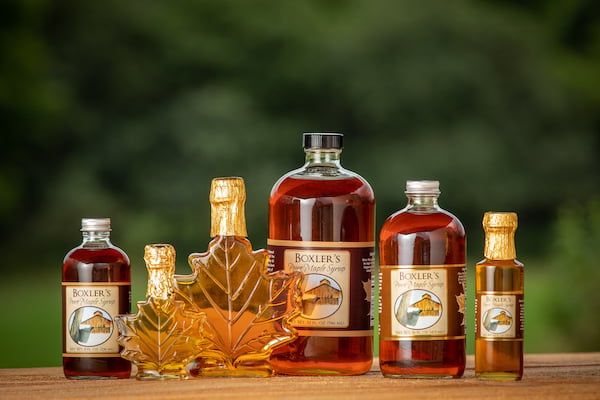

When great products come from small farms
It takes an entrepreneurial spirit to survive in the country. Making products on a farm is not always easy, often taking years and dollars, but the result lets you say, “Hey, I made something good” that people enjoy.
So you look around, apply your passion…and run with it.
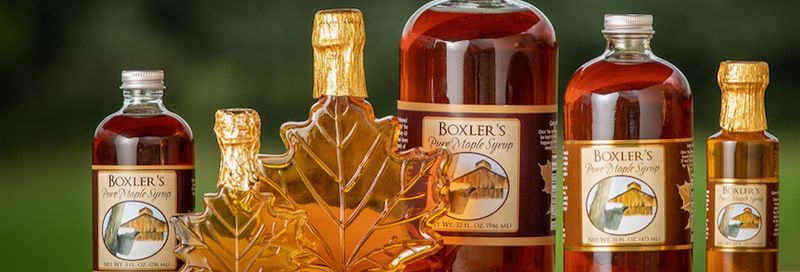
Boxler Maple Farms
The rolling hills of Wyoming County in western New York State are known for dairy production, and that drew Swiss immigrant Joseph Boxler to the area. Settling in the town of Varysburg in the early 1900s, Joseph began tapping a few trees during sugaring season as a hobby, using a team of horses to move from tree to tree.
Joseph’s son Hans Boxler Sr. kept the tradition alive with 750 taps and galvanized buckets, taking his family into the woods for collection but now using a tractor and wagon. In 1992, David Boxler tapped 4,000 trees and cooked down sap with a wood-fired evaporator—which meant endless hours cutting and splitting wood to keep the fire burning.
Today, it remains a family business with David working side-by side with daughter Nikki and son Warren.
It’s a tough seasonal business—you do virtually all your hard work outside in the winter and spring when it’s cold and often snowing.
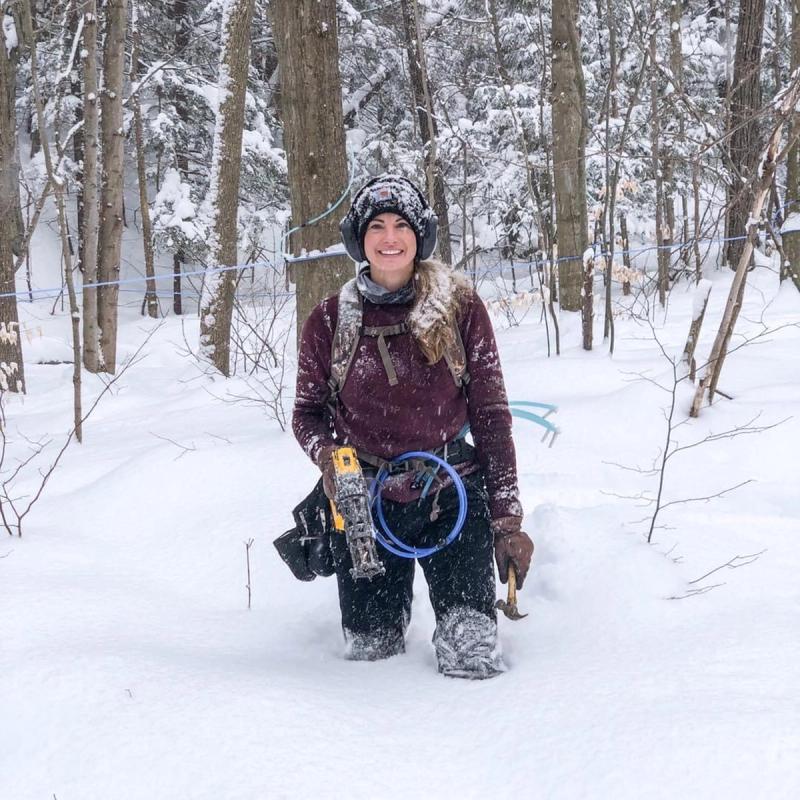
However, “family business” doesn’t mean clinging to old-fashioned methods.
Making maple syrup
Traditionally, sugarmakers pounded spigot taps into trees, collecting sap in buckets (as Joseph Boxler did). Then they emptied the buckets into bigger containers. These were transported by wagon to a larger tank and then boiled down to eventually turn it into maple syrup.
The Boxlers don’t do that anymore, but it’s still labor intensive.
Each of their 32,000 maple trees is drilled, and a tap collects the sap where it flows down a series of plastic collection tubes (from tree to spout, drop line, lateral line, main line, and gathering tank…altogether, about 175 miles! It is collected and transported to three silos where the watery sap begins the process of turning into maple syrup.
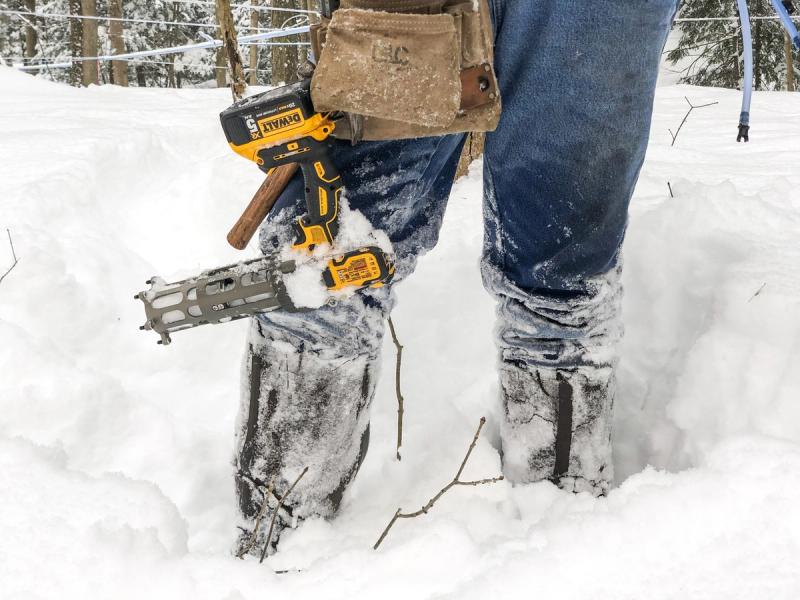
Sap into syrup
With the sap in the Boxler’s silos, work is far from done. Raw sap is only about two percent sugar, so it has to be reduced down.
First, the sap undergoes a reverse osmosis process, where some of the water is removed to help speed up the next step. Basically, maple syrup is boiled to remove even more water.
But they aren’t done yet. Once it becomes syrup, everything is forced through a diatomaceous earth (DE) filter press. Any small impurities bond with even smaller DE particles and are filtered out before grading.
Different color grades happen naturally, with location, tree maturity, producer methods, and even weather accounting for variation. Each maple producer’s product will consequently change from season to season, even with the same sugarbush as the starting point.
As a certified organic producer that sells to the public, all Boxler maple syrup is Grade A in golden, amber, dark, or very dark grades.
Finally, we have delicious maple syrup at this point, stored in food-safe stainless steel drums for wholesale purchase, or until bottling in smaller containers for retail sale.
Seasonal outdoor work, year-round
Producing maple syrup can be a seasonal hobby or a year-round operation, depending on the number of trees available.
The Boxler’s 175 miles of tubing stays up throughout the year, but it has to be walked nearly every day to check for line damage from fallen trees, snow, or wild animals chewing holes through the tubes.
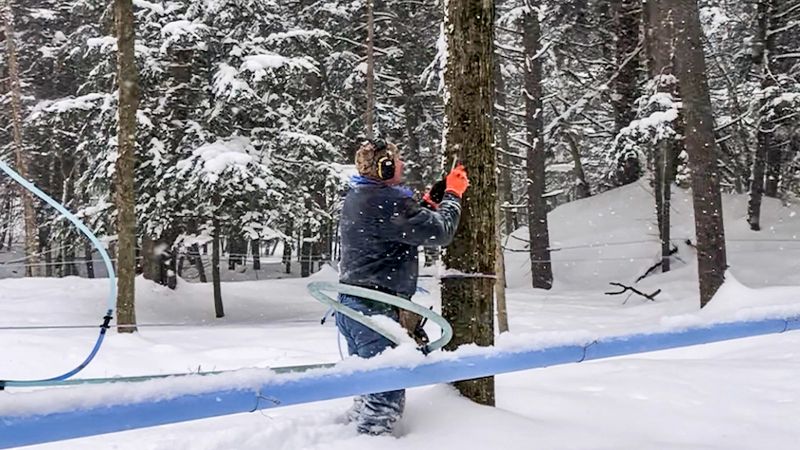
At the end of the season, the tap is removed so the tree can grow over the old tap hole. This is done every year to keep the tree healthy
The drop lines from the tree to the collecting tubes are also removed, cleaned, and sanitized before the next season.
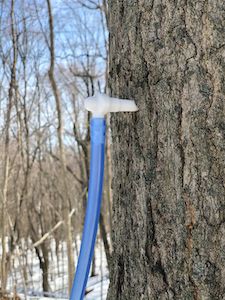
Innovating production, sales
Boxler Maple Farms spent 2021 working on and (almost) completing a new, larger production facility, located right next to their sugarbush, (the term for the maple grove they use). This means they don’t have to manually haul as much sap from collection tanks—fully one-third of the taps now flow directly into the building, reducing collection time and labor.
Nikki explains: “For the past 30 years we have been producing maple syrup in the same location, which we have outgrown, which means it was time for an upgrade!”
For years, the Boxlers sold wholesale to companies that repackage syrup for food service, restaurants, or food production. The recent addition of online sales has sparked ideas for future growth.
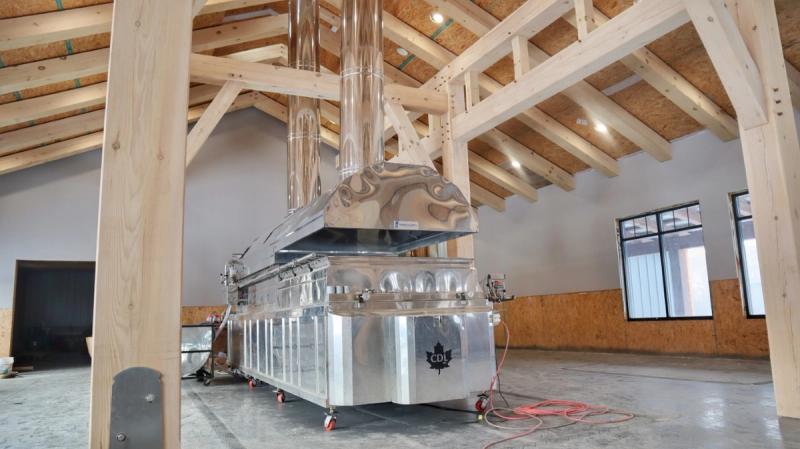
Boxler Maple Farms now sells online at boxlermaple.com. Currently, they have about a dozen separate products, including gift packs.
Non-maple syrup products like a fluffy pancake mix were developed by David’s daughter Tasha. Nikki explains that Tasha’s children love maple syrup any time of the day, and she developed the pancake mix to meet that need.
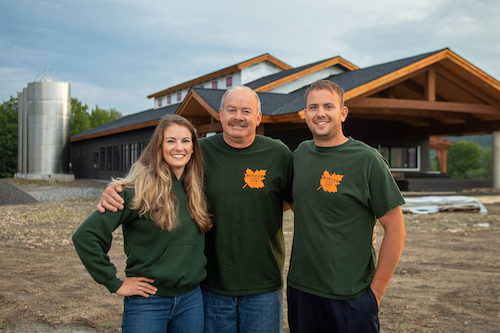
Best of all, Nikki says the new facility means production, storage, and bottling will all occur under one roof for better efficiency.
A sharp eye will note that the new facility is attractively designed, and located next to the major road. So, is retail on the horizon? “We don’t plan on it currently, but you never know,” Nikki teases.
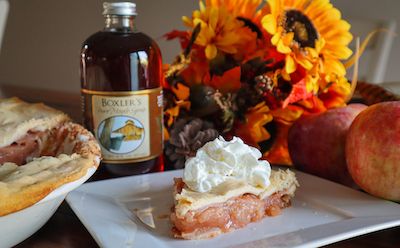
“Innovation is a necessity when it comes to farming,” she offers. “Innovation not only leads to better and more efficient ways to care for the environment while producing the highest quality products but it is also a way to ensure our family farms will be around for generations to come.”
Visit their YouTube channel
Shop Boxler Maple Farms
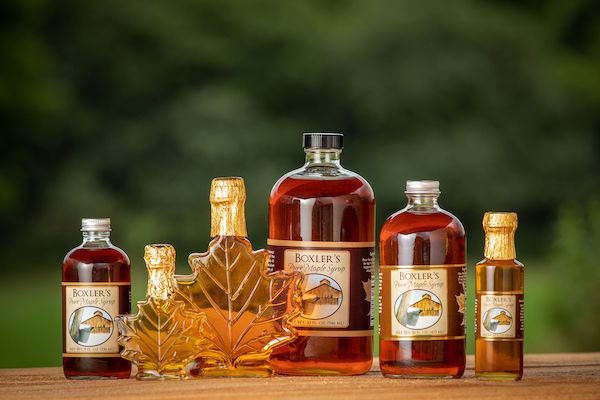
Tags:Features

Acreage Life is part of the Catalyst Communications Network publication family.
















